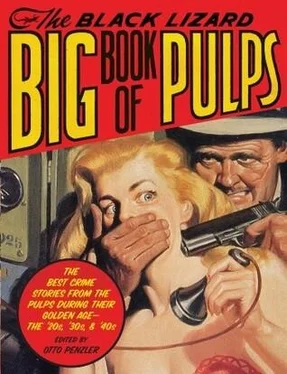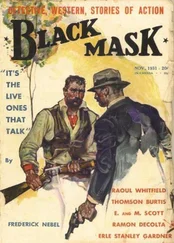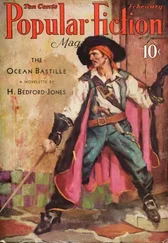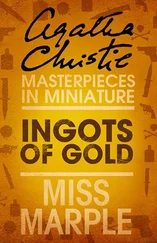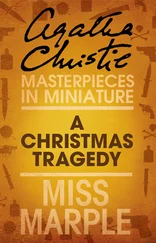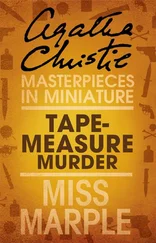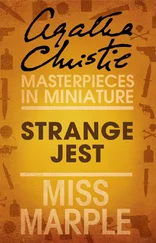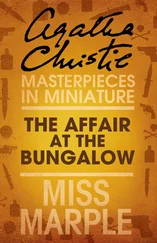Horace McCoy - Frost Rides Alone (Short Story)
Здесь есть возможность читать онлайн «Horace McCoy - Frost Rides Alone (Short Story)» весь текст электронной книги совершенно бесплатно (целиком полную версию без сокращений). В некоторых случаях можно слушать аудио, скачать через торрент в формате fb2 и присутствует краткое содержание. Год выпуска: 2007, ISBN: 2007, Издательство: Vintage, Жанр: Детектив, на английском языке. Описание произведения, (предисловие) а так же отзывы посетителей доступны на портале библиотеки ЛибКат.
- Название:Frost Rides Alone (Short Story)
- Автор:
- Издательство:Vintage
- Жанр:
- Год:2007
- ISBN:9780307280480
- Рейтинг книги:4 / 5. Голосов: 1
-
Избранное:Добавить в избранное
- Отзывы:
-
Ваша оценка:
- 80
- 1
- 2
- 3
- 4
- 5
Frost Rides Alone (Short Story): краткое содержание, описание и аннотация
Предлагаем к чтению аннотацию, описание, краткое содержание или предисловие (зависит от того, что написал сам автор книги «Frost Rides Alone (Short Story)»). Если вы не нашли необходимую информацию о книге — напишите в комментариях, мы постараемся отыскать её.
Frost Rides Alone (Short Story) — читать онлайн бесплатно полную книгу (весь текст) целиком
Ниже представлен текст книги, разбитый по страницам. Система сохранения места последней прочитанной страницы, позволяет с удобством читать онлайн бесплатно книгу «Frost Rides Alone (Short Story)», без необходимости каждый раз заново искать на чём Вы остановились. Поставьте закладку, и сможете в любой момент перейти на страницу, на которой закончили чтение.
Интервал:
Закладка:
Horace McCoy
Frost rides alone
Frost felt that he and the woman were being followed, had been followed since they crossed the Border. As they emerged from the Plaza Madero and turned down the crooked street towards the Cafe Estrellita he became acutely aware that footsteps were proceeding in the same direction as himself and that the owner was trying to attract as little attention as possible.
To satisfy himself that he was not the victim of his own imagination, so often the case when he invaded old Mexico after nightfall, he halted briefly before a shop window, wherein baubles were exhibited, and whispered a caution to his companion. The moment they stopped the footfalls ceased. No one passed. Quite evidently someone was following.
Fully alive now, his nerves on edge, Frost spoke to his companion, and they walked on. In the distance he could see the lights of the Cafe Estrellita and outside the shadowy forms of customers at the sidewalk tables. Frost walked slowly, his ears strained, but did not look around. He was still being followed. Moreover, the number of steps behind him had increased. There were now two or three men. The street was narrow and the footsteps loud: overhead the stars blinked and from a hidden patio nearby there floated the dim tinkle of a guitar.
As the woman passed the dark, dank interiors she gave way to a swift rush of apprehension and took Frost’s arm nervously. He leaned over and whispered: “Don’t get excited, but I’d like to know if you can use a gun.”
She moved her head closer. “I’m sort of jumpy,” she apologized lamely, “but really, I can use a gun. Fact is—” her confidence returned “—I’ve got one.” She patted her voluminous handbag. She went on lightly. “I haven’t been a newspaper woman ten years without learning a few things.”
Frost said, “Oh!” rather contritely, and steered her into the cafe without looking back at his pursuers.
La Estrellita was a little square room overcrowded with tables at which, outside and inside, sat perhaps half a hundred persons. The ceiling was almost obscured by cigarette smoke, and there was all the variety of noises commonly associated with Border joints. It was the hour when Algadon blazed with the specific intent of luring tourists, although the patronage here was now, as far as Frost determined in a hurried glance, mostly native.
At one end of the room was a bar at which two Mexicans were mixing drinks; behind them was the traditional frosted mirror and long rows of bottles. A square-shouldered, semi-bald man was busy plying a rag with what amounted to violence and one look at him left no doubt concerning his origin. He was one of those old-time American bartenders driven into Mexico by prohibition.
Glasses and spoons littered one end of the bar and near this end, on a raised platform, sat a quintet of native musicians languidly strumming their guitars. They simulated indifference, ennui, hoping to chisel a round of drinks from a sympathetic tourist. The house was bare of sympathy.
Frost led his companion inside and half way to the table he had mentally selected he recognized the unmistakable form of Ranger Captain George Stuart. Frost slowly passed Stuart’s table and said under his breath:
“Don’t look up, George. Just get set. Hell’s fixing to pop.”
The only indication Stuart heard was an almost imperceptible movement of his fingers as he knocked the ashes off his cigarette. Twenty years on the Border had given him perfect control of all his faculties, had deadened his emotions.
Frost went to a table near the end of the bar and helped his companion into a chair. Then he sat down, facing the room and glanced at George Stuart.
There passed a look of understanding. Stuart crossed his legs and as he did so slid his six-gun inside his thigh by means of his elbow. At that moment three men came through the doorway, looked hurriedly about the room and walked to a table near Frost. As they sat down their chairs scraped and the sounds were audible above the maudlin talk and the soporific music.
The three of them were young, Mexican in cast of countenance, with sharp faces and narrow eyes—of a general type with which the Border, from end to end, teems: shrewd, crafty wastrels who will turn any sort of a trick for any sort of a price.
Frost ordered two bottles of beer from a waiter, and looked at his companion.
“I’m afraid,” he said, striving to be unconcerned, “I’ve got you into a mess—and the only way out is straight ahead.”
“You think,” she asked, inclining her head slightly, “those men—”
“I don’t know,” Frost said. “But I’ve got a sweet hunch you’re liable to get a good story before this party ends. There’s a window directly behind you. If— if anything happens, get out and keep going.”
“You talk,” she said, “as if you regretted bringing me.”
Frost eyed her. “I never have regrets,” he said, “they’re cowardly. Just the same it didn’t look this foggy when we started. If we tried to get out now we’d never live to reach the street.”
“As bad as that?” She was smiling and the smile annoyed Frost. He didn’t answer. He thought her question was stupid. Hell, of course it was bad. She had no business here. But that was the way with the newspaper tribe—all of them. Especially women. They thought that their profession was protection. Helen Stevens, however, seemed more officious than any other Frost had known. Probably, he presumed, because she was to author a series about Hell’s Stepsons for an indubitably important organization, the Manhattan Syndicate, Inc. But, even then, Frost told himself again, this time bitterly, she had no business here.
Few spots on the Border are safe for a woman after dark; Algadon was no spot for a woman at any time. But Helen Stevens had insisted and as the final persuasive force she had even brought a letter from the Adjutant-General. And here she was.
It looked bad.
The waiter returned with the bottles and two glasses. He poured the drinks, placed the bottles on a tray, and started away.
“Psst!” said Frost. “Deja los botella. “
The waiter turned, surprised. “Como?”
“Deja los botella!” Frost repeated, more sharply.
The waiter lifted his eyes as if invoking divine compassion on the fool before him; and put the empty bottles back on the table. He moved away, slightly puzzled; but no more so than the newspaper woman.
“How odd!” she observed.
“Not at all,” Frost said. “I’ve got a lot of funny little habits like that.” He didn’t feel it necessary to tell her experience had taught him there was nothing comparable to the efficiency of a beer bottle at close quarters; or that he had a deep-seated hunch it would be at close quarters soon.
He took a sip from his glass and looked at his companion. Her face was unworried, lovely. He thought of that moment on route to La Estrellita when she had, momentarily frightened, touched his arm. Her face betrayed no fear now—nor anything that remotely approached fear. From the tranquillity of her demeanor she might have been sitting in the refinement of an opera loge instead of a Mexican dive where the air was charged with expectancy. Frost felt, irreverently, that if he, accustomed to tension, was slightly ill at ease, she, unaccustomed to anything of the sort, should at least have shared a portion of that discomfort. It mildly annoyed him that she didn’t.
She reached for the glass with her long fingers and as she lifted it she drummed her fingers lightly against the stem. Out of the corner of his eye Frost saw one of the three men who had followed him lean over and whisper to his comrades. He also saw George Stuart move forward in his chair, ready to get into action in a split second.
Читать дальшеИнтервал:
Закладка:
Похожие книги на «Frost Rides Alone (Short Story)»
Представляем Вашему вниманию похожие книги на «Frost Rides Alone (Short Story)» списком для выбора. Мы отобрали схожую по названию и смыслу литературу в надежде предоставить читателям больше вариантов отыскать новые, интересные, ещё непрочитанные произведения.
Обсуждение, отзывы о книге «Frost Rides Alone (Short Story)» и просто собственные мнения читателей. Оставьте ваши комментарии, напишите, что Вы думаете о произведении, его смысле или главных героях. Укажите что конкретно понравилось, а что нет, и почему Вы так считаете.
